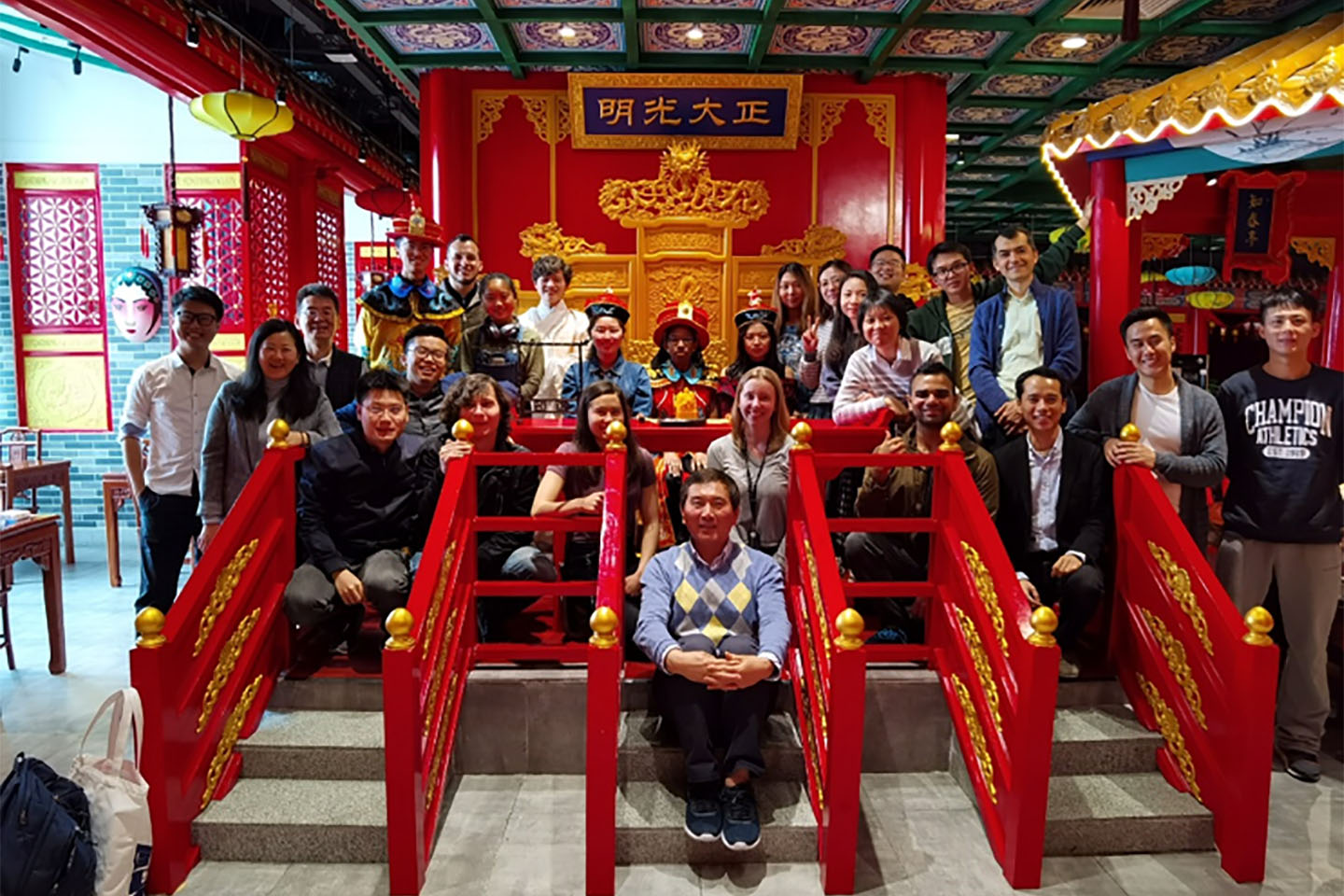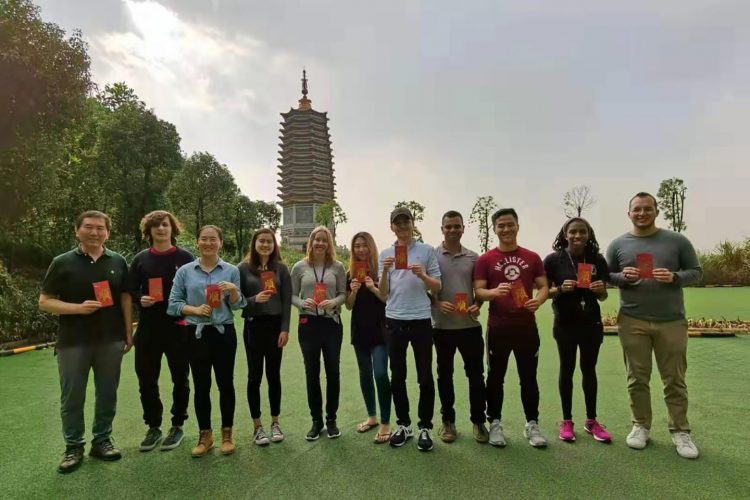
In January, Global Languages launched a pilot IAP language and cultural immersion program in Shenzhen, China, hosted by the Global Engagement Office of the Southern University of Science and Technology (SUSTech) in Shenzhen, China.
Senior Lecturer Dr. Haohsiang Liao and Lecturer Tong Chen led the group of eight students over the duration of the program from January 6 to January 19. The program’s daily schedule consisted of Chinese language classes in the morning, followed by individual language sessions with SUSTech student partners and afternoon activities in and around Shenzhen. The afternoon visits were categorized into three types: technology and business companies, Chinese arts and culture, and Shenzhen city attractions. These included the Chaihuo maker factory, the Shenzhen Civic center, DJI, CodeMao, Tencent, the Huaqianbei e-product market, the Artron Art Center, and the Hongfa Buddhist Temple. The students also participated in a tea tasting, and Chinese music and wushu activities. Beyond language exchange, students had ample opportunity to interact with SUSTech peers as they were housed in university dormitories, took meals in the cafeterias, and had access to the University gym and other facilities.
Interactions with peers
Participants reported enthusiastically on their interactions with SUSTech peers. One student said: “My experience with the SUSTech peers was an unforgettable experience. They are who really made this trip amazing. They were always willing to help, willing to listen, and honestly, I couldn’t have adapted to SUSTech without them.” And another student reported: “My experience with my SUSTech peers was better than I could have ever imagined. Their hospitality and enthusiasm to look after and care for us was extremely impressive to me. They are truly a special group of students and I will forever look fondly on the experiences I shared with them.”
Mini-projects
One of the program’s goals was to provide MIT students with hands-on opportunities to explore their academic interests about China through “mini-projects.” This year the program concluded with students’ presentation of their mini-projects covering the following topics:
- Chinese calligraphy
- Chinese dance and music
- Mahjong and AI
- Understanding the misunderstanding between China and the US
- The difference in CAD curriculum design between SUSTech and MIT
- The e-industry of Shenzhen
- The educational difference between China and the US
- The Gaokao (College Entrance Exam) in China
Cultural visits
Students noted the importance of the afternoon cultural visits in helping them gain knowledge about Shenzhen, in addition to improving their cross-cultural communication skills. In particular, many considered the unique experience of visiting the Hongfa Temple, where the schedule included a guided tour, meditation practice, a meeting with the Master, and a luxurious vegetarian dinner, to be a highlight:
“The trip to Hongfa Temple felt like a once-in-a-lifetime experience. We were invited to see sacred sections of the temple, participate in meditation, and gifted tokens that will allow me to remember the trip for a long time. It felt kind of surreal to not only meet the Master but also receive a gift personally from him. I was also really fascinated by the symbolism behind the statues, temples, and even the characters. It allowed me to learn more about Buddhist concepts that I hadn’t heard of before.”
“I really enjoyed visiting the Buddhist temple… Although I am not Buddhist myself I thought it was very interesting to learn about how Buddhist principles shape lifestyle…While in many ways modern life is so much better through technology and urbanization, there is something intangibly enviable about the minimalistic and balanced lifestyles they learned to live. In the great context of my trip to China, I think there are many of these principles will be important to the future development of China such as concerns with sustainability and environmental protection.”
Meeting with MIT alum
One highlight of the trip was a visit from MIT alumnus, Joshua Woodard, ’18 Mechanical Engineering, who minored in Chinese. Josh shared his experience studying two years at Tsinghua University as a Schwarzman Scholar and his current job as a project manager at an engineering firm in Shenzhen. He invited the program to visit his company in 2021.

MIT students and instructors at the Shenzhen Hongfa Temple, Jan. 11, 2020
